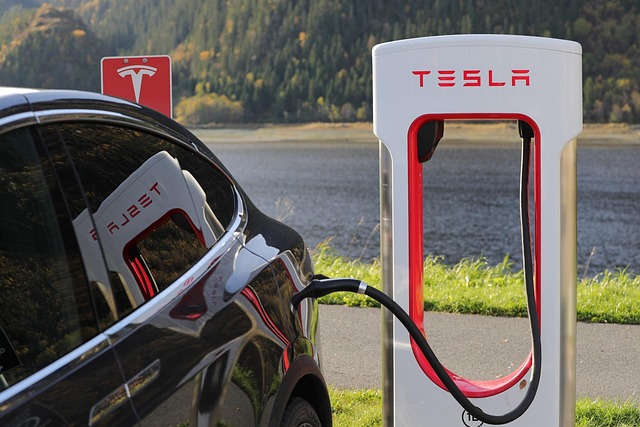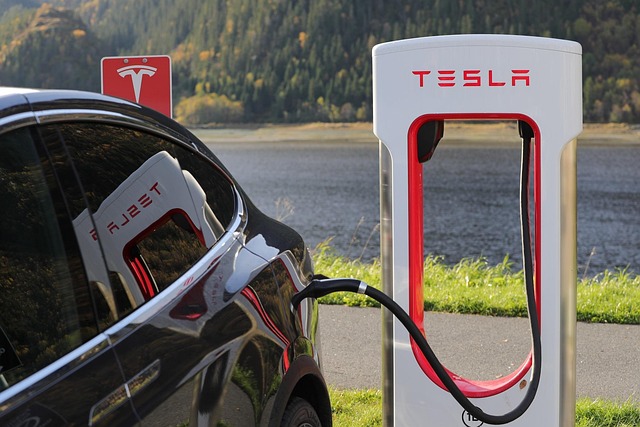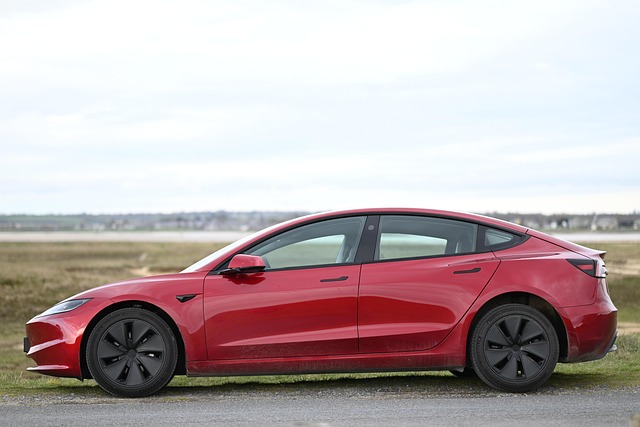The adoption of zero-emission bus technology offers significant environmental and economic benefits in urban areas, reducing air pollution, greenhouse gas emissions, and transportation costs. These sustainable vehicles contribute to public health improvements and attract eco-conscious tourists. With advancements in battery technology making them more affordable, cities worldwide are transitioning their fleets to reduce carbon footprints. Select Sustainable Vehicles, like zero-emission buses, play a crucial role in fostering a greener future while maintaining performance and reliability.
Discover the future of public transport with Zero-Emission Bus Technology. This innovative approach to mobility promises cleaner air and reduced carbon footprints. Our article explores the benefits for both environments and communities, delving into key components and recent innovations that make electric buses more efficient than ever. We examine global adoption trends and discuss future prospects, highlighting how select sustainable vehicles are revolutionizing urban landscapes worldwide.
- Understanding Zero-Emission Bus Technology
- Benefits of Eco-Friendly Public Transport
- Key Components and Innovations
- Global Adoption and Future Prospects
Understanding Zero-Emission Bus Technology

Zero-emission bus technology represents a significant leap forward in sustainable public transportation. These buses are designed to operate entirely on electricity, with no harmful tailpipe emissions, marking a dramatic shift from traditional diesel-powered vehicles. By selecting sustainable vehicles like zero-emission buses, urban areas can experience cleaner air and reduced noise pollution, leading to improved quality of life for residents.
This technology not only benefits the environment but also offers economic advantages. Electric cars for eco-conscious commuters have gained popularity due to their lower operating costs compared to fuel-efficient hatchbacks under $20k. Moreover, innovations in renewable energy sources like wind-powered yachts for luxurious sailing demonstrate that clean technologies are no longer confined to the realm of mass transit. As individuals and communities continue to explore carbon footprint reduction tips for vehicle owners, zero-emission buses serve as a tangible example of how we can collectively contribute to a greener future.
Benefits of Eco-Friendly Public Transport

The adoption of zero-emission bus technology brings numerous environmental and economic benefits, especially when implemented in densely populated urban areas. One of the most significant advantages is the improvement of air quality. These eco-friendly vehicles significantly reduce greenhouse gas emissions, leading to a decrease in pollution levels, which is particularly crucial in establishing low-emission zones in major cities. By selecting sustainable public transport options, cities can contribute to better health outcomes for residents and attract tourists who increasingly prioritize green travel choices.
Furthermore, transitioning to electric buses offers cost savings opportunities for transportation authorities. While the initial investment in e-mobility solutions for smart cities may be higher, long-term operational costs are reduced due to lower fuel consumption. This shift also enables the integration of energy-efficient lighting for garages and the potential use of hybride emergency response vehicles for quick rescues, enhancing overall efficiency within urban transportation networks.
Key Components and Innovations

The shift towards sustainable transportation has spurred significant advancements in zero-emission bus technology. Key components driving this revolution include electric motors, high-capacity batteries, and advanced power management systems. These innovations ensure buses can operate efficiently with minimal environmental impact. Modern designs also incorporate recycled tire tires for long-lasting performance, further reducing waste and costs.
Beyond the core technologies, hybrid emergency response vehicles represent another exciting development. These vehicles combine electric propulsion with backup fuel cells or generators, enabling quick rescues in situations where traditional charging infrastructure might not be readily available. Recognized by prestigious green car awards, these advancements underscore the industry’s commitment to a cleaner, more sustainable future while maintaining reliability and performance.
Global Adoption and Future Prospects

The global adoption of zero-emission bus technology is gaining momentum, driven by growing environmental consciousness and stricter regulations. Many cities around the world are transitioning their public transport fleets to reduce carbon emissions and improve air quality, making buses a key component in achieving sustainable urban mobility. Countries like China have led the way with massive investments in electric bus infrastructure, while Europe and North America are rapidly catching up. This shift is not only beneficial for the environment but also economically viable, as advancements in battery technology have led to more affordable and efficient zero-emission buses.
Looking ahead, the future prospects for zero-emission buses appear promising. As infrastructure continues to improve and production costs decrease, it is expected that these buses will become even more widespread. The integration of renewable energy sources, such as solar charging stations and wind-powered technologies, could further enhance sustainability efforts. Additionally, the popularity of fuel-efficient hatchbacks under $20k and electric cars for eco-conscious commuters demonstrates a growing demand for sustainable vehicles, setting the stage for buses to play an even more significant role in reducing carbon footprints on a global scale.
Zero-emission bus technology represents a significant step forward in sustainable public transportation, offering numerous environmental and economic benefits. By adopting these eco-friendly vehicles, cities can improve air quality, reduce noise pollution, and contribute to mitigating climate change. As global awareness of environmental issues continues to grow, the successful implementation and further development of zero-emission bus technology will be pivotal in selecting sustainable vehicles for urban mobility, ensuring a greener future for our cities.



